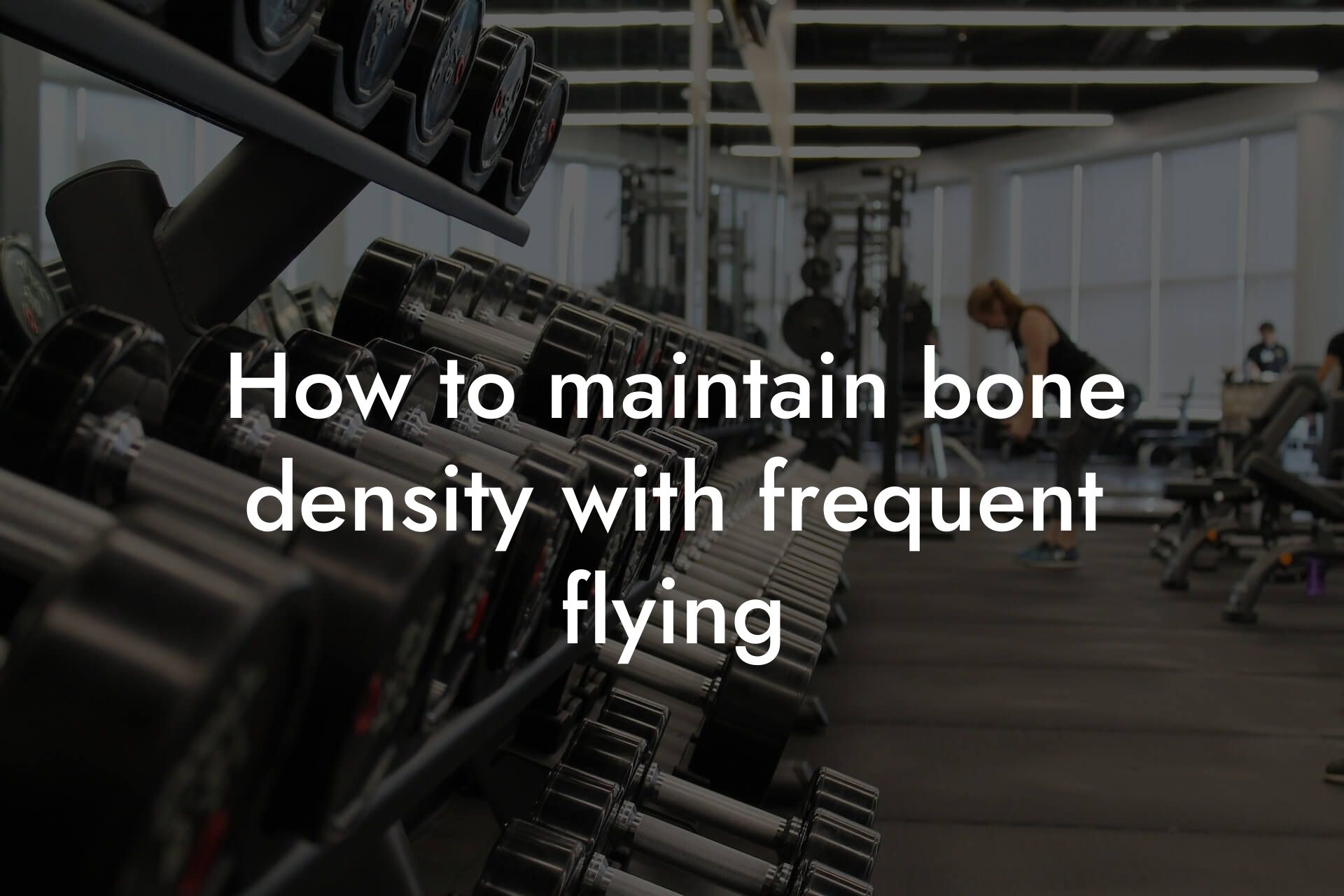As an aviation professional, you understand the importance of maintaining peak physical and mental health. The demands of your job require you to be in top shape, both physically and mentally, to ensure the safety of yourself, your colleagues, and your passengers. However, the unique demands of your profession can also take a toll on your body, making it essential to prioritize health and wellness. This is where DEXA scans come in – a valuable tool that can provide you with a comprehensive understanding of your body composition, bone density, and overall health.
Table of Contents
What is a DEXA Scan?
A DEXA (Dual-Energy X-ray Absorptiometry) scan is a non-invasive, pain-free medical imaging test that measures bone density and body composition. It uses low-level X-rays to produce detailed images of the body, providing accurate measurements of bone density, lean mass, fat mass, and other important health metrics. DEXA scans are commonly used to diagnose and monitor osteoporosis, but they also offer a wealth of information for individuals looking to optimize their overall health and fitness.
The Benefits of DEXA Scans for Aviation Professionals
As an aviation professional, a DEXA scan can provide you with valuable insights into your body composition and bone density, helping you to identify areas for improvement and optimize your health and wellness. Some of the key benefits of DEXA scans for aviation professionals include:
- Accurate body fat percentage: DEXA scans provide a precise measurement of body fat percentage, allowing you to track changes over time and make informed decisions about your diet and exercise routine.
- Lean mass measurement: By measuring lean mass, DEXA scans can help you identify areas where you may need to increase muscle mass, which is essential for maintaining strength and endurance in your profession.
- Bone density analysis: DEXA scans can detect early signs of osteoporosis, a condition that can have serious consequences for aviation professionals. By monitoring bone density, you can take proactive steps to maintain strong bones and reduce the risk of fractures.
- Personalized health and fitness recommendations: With the data provided by a DEXA scan, you can work with a healthcare professional to develop a personalized fitness and nutrition plan tailored to your specific needs and goals.
How DEXA Scans Can Improve Performance
As an aviation professional, you understand the importance of peak physical performance. DEXA scans can help you optimize your performance by:
- Identifying areas for improvement: By analyzing your body composition and bone density, DEXA scans can help you identify areas where you may need to improve, such as increasing lean mass or reducing body fat.
- Developing targeted training programs: With the data provided by a DEXA scan, you can develop targeted training programs that focus on improving specific areas of your body, such as increasing strength and endurance.
- Enhancing overall health and wellness: By monitoring your bone density and body composition, DEXA scans can help you maintain overall health and wellness, reducing the risk of injury and illness.
Common Health Concerns for Aviation Professionals
Aviation professionals face a range of unique health challenges, including:
- Osteoporosis: The low-gravity environment of flying can lead to bone loss and osteoporosis, making it essential to monitor bone density.
- Fatigue: The physical and mental demands of flying can lead to fatigue, which can be exacerbated by poor body composition and inadequate nutrition.
- Muscle imbalances: The repetitive movements and postures required for flying can lead to muscle imbalances, which can increase the risk of injury and reduce performance.
- Nutrition and hydration: The high-stress environment of flying can make it challenging to maintain a healthy diet and stay hydrated, leading to a range of health problems.
How DEXA Scans Can Help Address These Concerns
DEXA scans can help address these common health concerns by providing valuable insights into body composition and bone density. By monitoring these metrics, you can:
- Identify early signs of osteoporosis and take proactive steps to maintain strong bones.
- Optimize body composition to reduce fatigue and improve performance.
- Identify muscle imbalances and develop targeted training programs to address them.
- Make informed decisions about nutrition and hydration to support overall health and wellness.
What to Expect from a DEXA Scan
A DEXA scan is a quick, painless, and non-invasive procedure that typically takes around 10-15 minutes to complete. During the scan, you will lie down on a comfortable table, and a machine will pass over your body, emitting low-level X-rays. The scan is completely safe and does not require any special preparation.
As an aviation professional, your health and wellness are critical to your performance and safety. DEXA scans offer a valuable tool for optimizing your health and fitness, providing accurate measurements of body composition and bone density. By incorporating DEXA scans into your health and wellness routine, you can identify areas for improvement, develop targeted training programs, and maintain peak physical performance. At Tano Performance Group, we are committed to helping high-earning professionals like you achieve their health and fitness goals. Contact us today to learn more about our DEXA scan services and take the first step towards optimizing your health and performance.
Frequently Asked Questions
What is a DEXA scan, and how does it work?
A DEXA (Dual-Energy X-ray Absorptiometry) scan is a non-invasive medical test that measures bone density, body composition, and fat distribution. It uses low-level X-rays to produce detailed images of the body's internal structures, providing accurate measurements of bone density, lean mass, and fat mass.
Why are DEXA scans important for aviation professionals?
Aviation professionals, such as pilots and flight attendants, are required to maintain a high level of physical fitness and health to ensure safe flight operations. DEXA scans help identify potential health risks, such as osteoporosis, obesity, and muscle imbalances, which can impact their ability to perform their duties.
What are the benefits of DEXA scans for aviation professionals?
DEXA scans provide aviation professionals with valuable insights into their overall health, allowing them to take proactive steps to maintain their physical fitness, reduce the risk of injuries, and optimize their performance. Additionally, DEXA scans can help identify potential health issues early on, reducing the risk of medical disqualification.
How accurate are DEXA scans?
DEXA scans are highly accurate, with a precision error of less than 1%. They are widely recognized as the gold standard for measuring bone density and body composition.
Is a DEXA scan painful or uncomfortable?
No, DEXA scans are completely painless and non-invasive. You will simply lie down on an examination table, and the scan will take approximately 10-15 minutes to complete.
Do I need to prepare for a DEXA scan?
No special preparation is required for a DEXA scan. However, it's recommended that you avoid wearing clothing with metal fasteners or accessories, as they may interfere with the scan.
How often should I get a DEXA scan?
The frequency of DEXA scans depends on individual circumstances. As an aviation professional, it's recommended to get a DEXA scan annually or bi-annually to monitor changes in your body composition and bone density.
Can DEXA scans detect osteoporosis?
Yes, DEXA scans are highly effective in detecting osteoporosis, a condition characterized by brittle and porous bones. Early detection allows for timely intervention and treatment, reducing the risk of fractures and other complications.
How does a DEXA scan measure body fat percentage?
A DEXA scan uses X-ray beams to measure the density of different tissues in the body, including fat and lean mass. The scan provides a detailed breakdown of body fat percentage, including visceral fat, which is a key indicator of metabolic health.
Can DEXA scans help with weight management?
Yes, DEXA scans provide valuable insights into body composition, helping you understand how your diet and exercise habits are impacting your body fat percentage and lean mass. This information can be used to develop a personalized weight management plan.
Are DEXA scans safe?
Yes, DEXA scans are extremely safe, using very low levels of radiation equivalent to a few days of natural background radiation. The scan is also completely non-invasive, with no injections or invasive procedures required.
Can I get a DEXA scan if I'm pregnant or breastfeeding?
No, DEXA scans are not recommended for pregnant or breastfeeding women, as the X-ray radiation may pose a risk to the developing fetus or baby. Alternative methods, such as ultrasound or bioelectrical impedance analysis (BIA), may be used instead.
How long does it take to get the results of a DEXA scan?
The results of a DEXA scan are typically available within 24-48 hours, depending on the facility and the complexity of the scan. Your healthcare provider will review the results with you and provide personalized recommendations.
Can I get a DEXA scan if I have a pacemaker or implantable device?
Yes, but it's essential to inform your healthcare provider about any implantable devices, such as pacemakers, artificial joints, or surgical clips, as they may affect the accuracy of the scan.
How does a DEXA scan compare to other body composition analysis methods?
DEXA scans are considered the gold standard for measuring body composition, as they provide highly accurate and detailed information about bone density, lean mass, and fat mass. Other methods, such as BIA or skinfold measurements, may be less accurate and provide limited information.
Can DEXA scans help with athletic performance?
Yes, DEXA scans can help athletes optimize their performance by identifying areas for improvement in body composition, such as increasing lean mass or reducing body fat percentage. This information can be used to develop a personalized training and nutrition plan.
Are DEXA scans covered by insurance?
Insurance coverage for DEXA scans varies depending on your provider and policy. It's recommended to check with your insurance provider to determine if DEXA scans are covered under your plan.
Can I get a DEXA scan if I'm under 18 years old?
DEXA scans are typically recommended for individuals over 18 years old. However, in certain cases, such as for athletes or individuals with a high risk of osteoporosis, a DEXA scan may be recommended for minors. It's essential to consult with a healthcare provider to determine if a DEXA scan is appropriate.
How do I find a qualified healthcare provider to perform a DEXA scan?
You can find a qualified healthcare provider to perform a DEXA scan by asking for referrals from your primary care physician, searching online, or contacting professional organizations, such as the International Society for Clinical Densitometry (ISCD).
What should I do if I have concerns about my DEXA scan results?
If you have concerns about your DEXA scan results, it's essential to discuss them with your healthcare provider. They can provide personalized guidance and recommendations based on your results and individual circumstances.
Can I get a DEXA scan if I have a metal implant or prosthetic?
Yes, but it's essential to inform your healthcare provider about any metal implants or prosthetics, as they may affect the accuracy of the scan. In some cases, alternative methods may be used to ensure accurate results.
How does a DEXA scan differ from a bone density test?
A DEXA scan is a type of bone density test that measures bone density, as well as body composition and fat distribution. Other bone density tests, such as quantitative computed tomography (QCT) or ultrasound, may only measure bone density.
Here are some related articles you might love...
- How to maintain bone density with frequent flying
- How aviation professionals can manage jet lag and fitness
- Staying fit while managing irregular flight schedules
- Balancing in-flight duties with personal fitness goals
- Nutrition strategies for staying healthy on long flights
- Managing stress and staying fit in the aviation industry
- The impact of physical health on flight safety
- The role of physical fitness in maintaining flight readiness
- Quick workouts for pilots and flight attendants during layovers
Zak Faulkner
Zak Faulkner is a leading authority in the realm of physical health and body composition analysis, with over 15 years of experience helping professionals optimise their fitness and well-being. As one the experts behind Tano Performance Group, Zak has dedicated his career to providing in-depth, science-backed insights that empower clients to elevate their physical performance and overall health.
With extensive knowledge of DEXA technology, Zak specializes in delivering comprehensive body assessments that offer precise data on body fat, muscle mass, bone density, and overall physique. His expertise enables individuals to make informed decisions and achieve their fitness goals with accuracy and confidence. Zak’s approach is rooted in a deep understanding of human physiology, combined with a passion for helping clients unlock their full potential through personalised strategies.
Over the years, Zak has earned a reputation for his commitment to excellence, precision, and client-focused service. His guidance is trusted by top professionals who demand the best when it comes to their health. Whether advising on fitness programs, nutritional strategies, or long-term wellness plans, Zak Faulkner’s insights are a valuable resource for anyone serious about taking their health and fitness to the next level.
At Tano Performance Group, Zak continues to lead our Content Team revolutionising how professionals approach their physical health, offering unparalleled expertise that drives real results.




